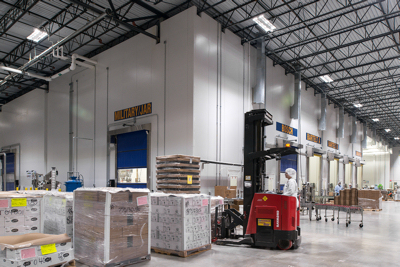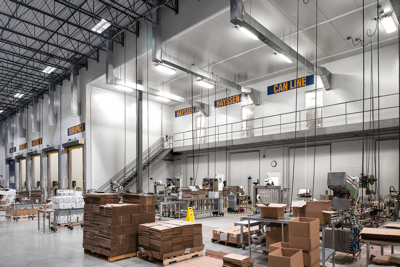 By Steve Mauro, Kingspan Insulated Panels
By Steve Mauro, Kingspan Insulated Panels
Food safety failures are no joke. They can cause serious health complications for the infected consumer, not to mention deliver reputational and financial blows to the responsible business.
The American Meat Institute is known for having identified 11 sanitary design principles that bring prevention into play prior to a food-handling facility even throwing open its doors. The principles drive home the point that food safety can be built into a given facility, not only in terms of how the structure is designed but also through which particular materials and components are chosen for the task.
AMI notes that “facility layout and design are key factors in ensuring the safety of meat and poultry products.” AMI’s design principles are broken into a few basic areas:
- Maintaining zones of separation to prevent the transfer of hazards
- Keeping things cold and controlling moisture
- Facilitating sanitation
 | |
Kingspan Insulated Panels has emerged as a major provider of insulated metal panel systems for cold storage and food processing facilities. Recently added to the company's growing portfolio of projects was a $14 million expansion at the Jackson, WI food processing plant of Kerry America Inc. | |

| |
| | |
 | |
Insulated Metal Panels for a Clean Safe Environment
Insulated metal panel systems are an exceptional choice when trying to achieve AMI’s principles in thermally controlled environments such as food processing and packing facilities, along with cold storage coolers and freezers. The wall panels offer airtightness and weather tightness, control of precise temperatures, envious thermal value, and surfaces that are washable and able to reject mold and bacteria growth.
Using insulated metal panel systems, including insulated cold storage doors, for a sanitary facility makes it easy to maintain good hygiene practices and protect product. Using energy-efficient components, of course, also means you save on energy costs.
Think the components you use in sanitary design don’t matter that much? Consider the following:
- Subpar insulation can put product at risk during the event of a refrigeration outage.
- Biological pathogens can thrive when walls break down over time and form small crevices
- Product can be threatened during heavy traffic periods (i. e. shipping and receiving) if the cold storage door does not form an airtight seal
AMI’s 11 principles help build a foundation for solid design in sanitary facilities. Selecting insulated metal panels help achieving those benchmarks just that much easier.